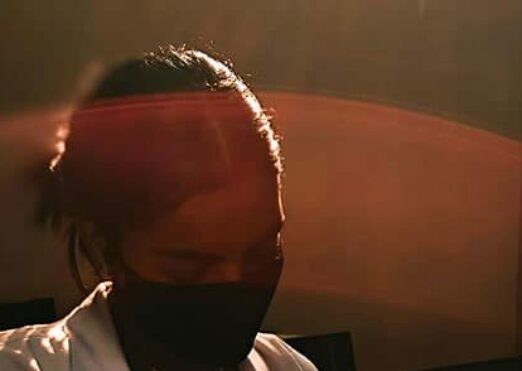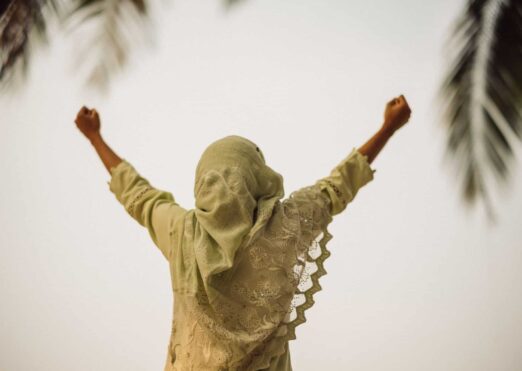Tackling Trafficking at the Border
May 19, 2021
A Day in the Life of a Victim Navigator: Tackling Trafficking at the Border
“The woman had been very vulnerable prior to being trafficked to the UK and her vulnerability made her a prime target for exploitation. Without our intervention the woman would not have had any support and would have ended up in the same vulnerable position again.” – Victim Navigator in partnership with Border Force UK
A key part of our work in the UK is our Victim Navigator Programme – specialists embedded into police forces and border forces, helping to bridge the gap between those that have been trafficked and the criminal justice system.
We sat down with our Victim Navigator in Glasgow to hear more about their front line work tackling human trafficking and modern slavery with Border Force at Glasgow Airport…
Why are you passionate about ending modern slavery in the UK?
Every human deserves dignity and freedom. I believe it is not acceptable in this day and age to be apathetic towards individuals being treated as commodities. We all have a responsibility to ensure every person is free from harm, fear and exploitation. Sometimes it is easy to think that this crime happens in other countries far away but that is far from reality – there are at least 100,000 victims of slavery in the UK right now. I want to live in a place where the value, worth and dignity of fellow human beings is paramount.
“The International Organization for Migration estimates that approximately 80% of modern slavery victims are brought through official border points, therefore, it is a critical opportunity to intervene and engage with victims at such an early stage of their journey and give them the support they deserve.” – Victim Navigator in partnership with Border Force UK
How long have you been a Victim Navigator for and how does your role work alongside local police?
I have been a Victim Navigator since December 2019, working with Border Force UK in Glasgow Airport. My role helps officers identify modern slavery victims at an early stage while also giving them wrap-around care. Border Force officers have lots of other duties involved with a potential case and victims may be afraid to engage with them. I provide resources and support plans to help victims feel valued and safe. This often helps in building trust with officers and ensures that the best outcome is achieved for victims, whether they remain in the UK or wish to return home. After these early stages, my cases are often passed on to police and I will continue to help support victims to engage with investigations.
Give us a taste of what a typical day looks like being a Victim Navigator?
Every day is different. When I am helping Border Force teams to process flight arrivals, I am on standby looking out for any potential trafficking cases. I am also there to advise officers on any concerns they have about individuals and cases.
When a potential victim is identified, I support them in a safe place, listening and caring for them during a stressful time. I talk them through what is happening and arrange appropriate support for them, whether in the UK or for their return home. It is vital that, if a victim returns home, they will still receive support – this ensures we minimise the risk that they will be trafficked again.
I stay connected with victims, continuing to help advocate and secure support for them. This requires partnership working and building relationships with partners and other organisations. Collaboration is essential!
I also train officers and provide them with relevant resources to help in their identification and response capabilities. This is valuable information such as country profiles, victim engagement, trauma-informed approaches and new tools that may be useful.
What makes Justice and Care different in the way it approaches working with victims?
The fact that Navigators are embedded within police and Border Force teams makes all the difference. We are there to support officers and are present at such an early stage of a victim’s journey as well. We work to find solutions to the challenges that officers face in supporting victims, which helps both their efforts and a victim’s wellbeing, while also keeping everyone connected.
What has been one of your highlights/biggest wins so far?
Securing support for a victim who was returning to her home country. The woman had been very vulnerable prior to being trafficked to the UK and her vulnerability made her a prime target for exploitation. Without our intervention, the woman would not have had any support and would have ended up in the same vulnerable position again. It was challenging to secure support for her by engaging with organisations based in her home country. However, I kept her safe and optimistic about engaging with the relevant authorities. It was the first time she had felt people cared enough not to give up on her. We were able to get her into a position where she finally had choices about her future, something she had never had before.
What is a challenge you’ve faced in your role?
COVID-19 has had a massive impact on international travel, bringing challenges in helping victims return home. Some of these challenges have included trying to coordinate returns in the correct time frame, sourcing hard to come by PCR tests and also addressing other COVID requirements in other countries. I have had to get creative with partners to achieve these things! For example, I was able to work with a local football team in Glasgow that carried out weekly COVID tests. Through this partnership I was able to get tests for some of the victims we were supporting in order that they could fly home. This meant they were home and reunited with their families quicker than expected.
What do you like to do outside of work?
I love being outside and active – whether that’s playing sports or exploring the great outdoors with my border collie puppy! My fiancé and I love learning new things, so you may also find us growing our own veg, investing in a kayak or simply visiting landmarks and museums!


